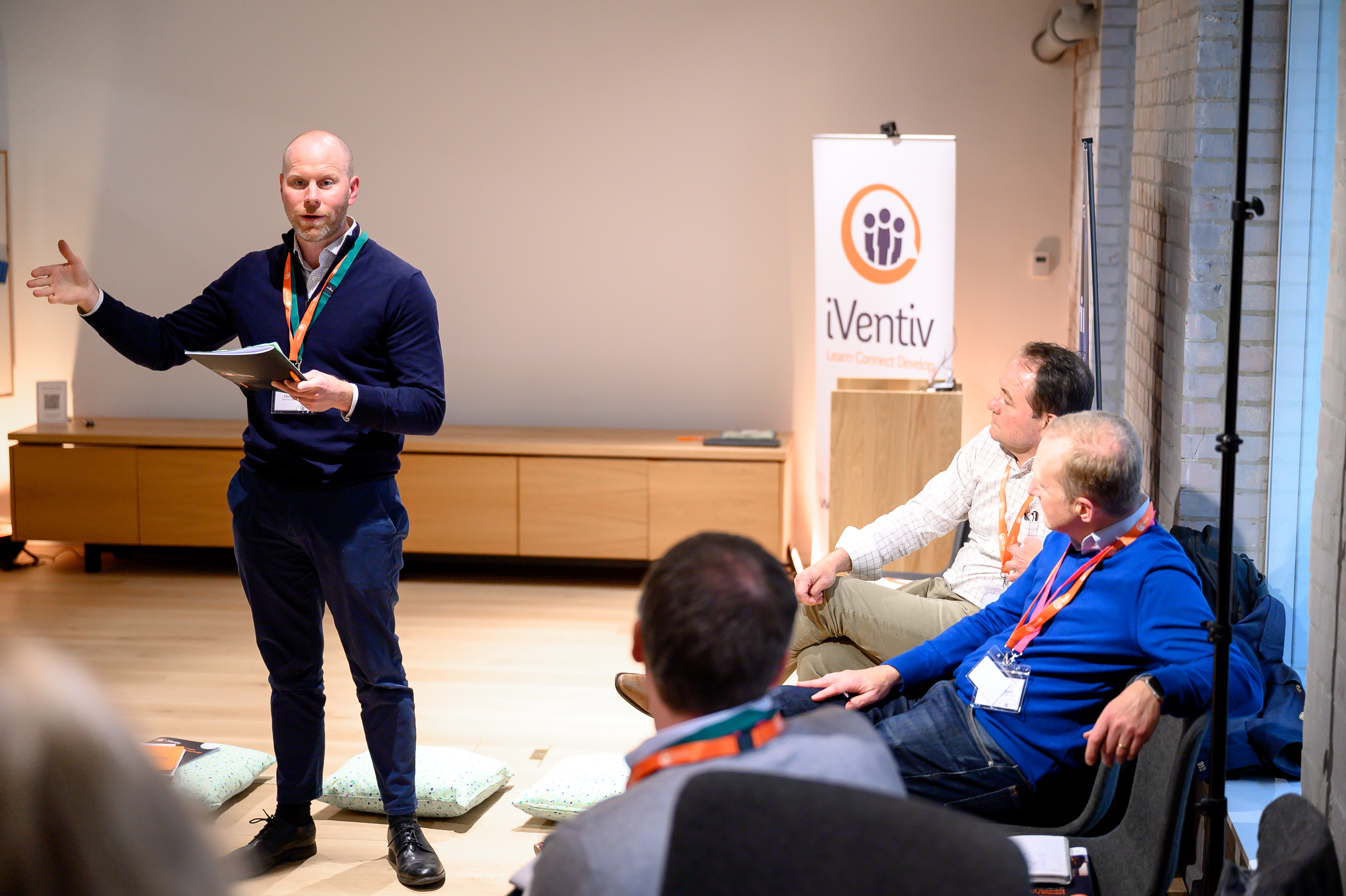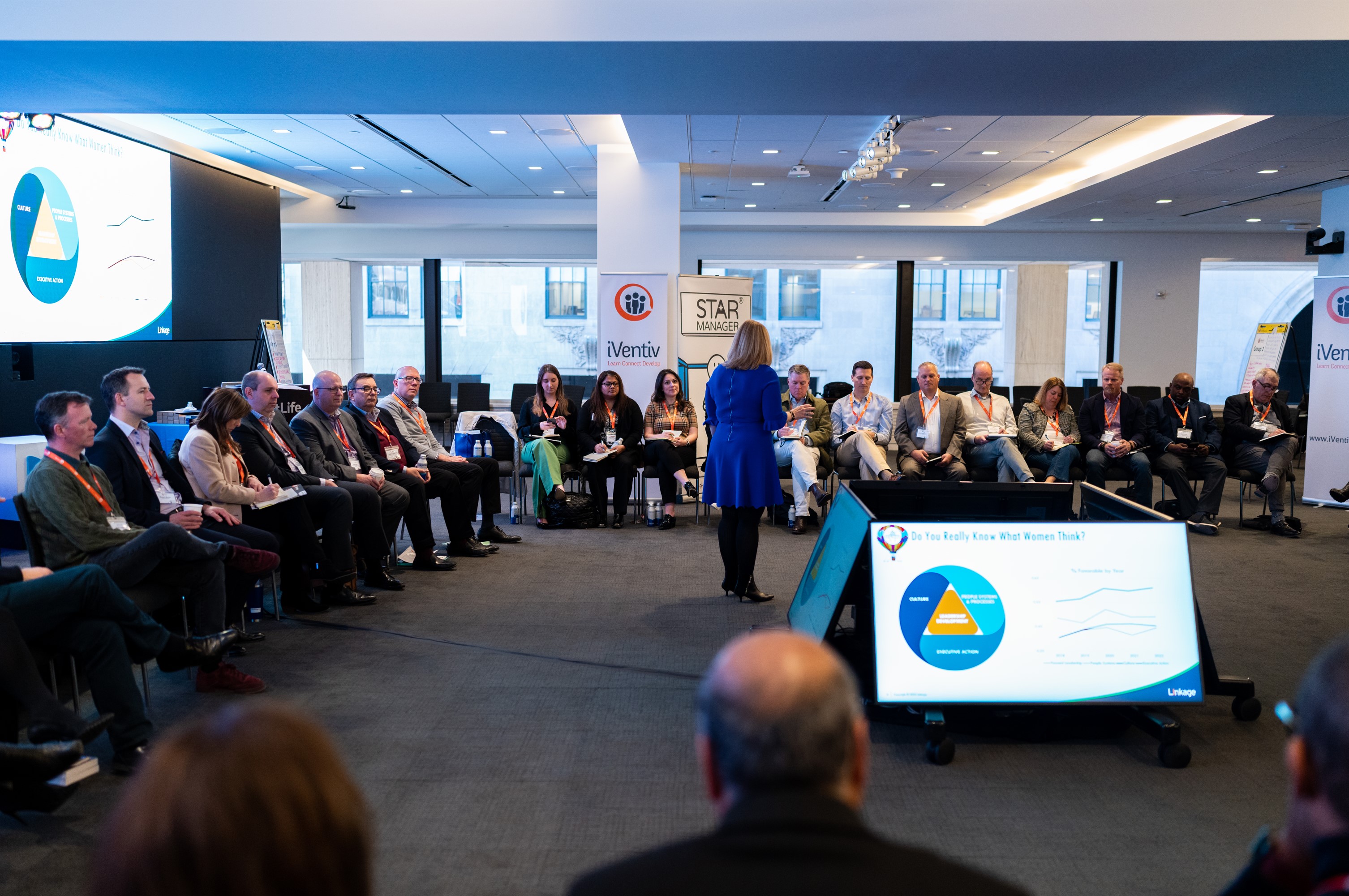Submitted by networkadmin on
Leadership? Skills? Learning Tech and AI? L&D and Talent Management have never had so many competing priorities and the pace of change has been enormous.
At the end of 2022, the iVentiv Pulse tracking report showed that leadership development was the single biggest priority for Global Heads of Learning and Talent. The report draws on questionnaires sent to Chief Learning Officers and Heads of Talent Management, where participants were asked to identify their key goals and challenges.
CLOs, their L&D teams, and Heads of Talent Management, were most interested in how to develop leaders who, in their words, had the right “mindset” and “attributes” to be “mentors and coaches” and “make effective and good decisions in times of high stress and ambiguity.”
In this blog, we ask how much that has changed so far in 2023 and look at the key themes shaping the world of L&D and Talent Management.
The Top Priorities for CLOs and Heads of Talent in 2023 So Far
So far in 2023, ‘Leadership and Executive Development’ remains the biggest priority as far as Learning and Talent Heads are concerned. The full top ten so far in 2023, with changes from 2022, is as follows:
1. Leadership and Executive Development: 58% (no change since 2022)
2. Reskilling and Upskilling: 45% (+7% since 2022)
3. Learning Culture: 38% (+22%)
4. People Data/Insights, Measurement and ROI: 30% (+3%)
5. Learning Platforms (LMS/LXP) and Tech (VR, AR, AI): 27% (no change)
6. Diversity, Equity, Inclusion and Belonging (DEIB): 24% (+3%)
7. Employee Engagement and Wellbeing: 24% (+6%)
8. Coaching and Mentoring: 24% (+7%)
9. HiPo Talent: 18% (+7%)
10. Change Management: 18% (+8%)
That means ‘Learning Culture’ is the biggest mover so far in 2023, but as we explain below that may be for methodological reasons. Leadership, however, retains the top spot, while ‘Reskilling and Upskilling’, ‘Employee Engagement and Wellbeing’, ‘Coaching and Mentoring’, ‘HiPo Talent’ and ‘Change Management’ have all seen increases.
Why is Leadership the Key Issue for L&D?
At 58% and holding firm, ‘Leadership and Executive Development’ remains the most selected priority for Global Heads of L&D, Executive Development, and Talent Management. Notably, even if we strip out Global Heads of Executive Development (who we would expect to always be prioritising leadership), this is still the most commonly selected result.
Why? Some of the other top priorities may point to one explanation. ‘Change Management’ is the tenth most popular topic among respondents, at 18%. The disruption of recent years, from pandemics and wars to shortages and technological changes, have made life much more difficult for leaders.
That is reflected in the comments that learning and talent leaders have made in their responses. One discussed “enabling people to lead through accelerating change,” another the importance of leaders who were “embracing change”. “Leadership development supporting significant change” in a “challenging business environment,” as one respondent phrased it, has clearly been a recurring theme.
On top of the importance of agility at an executive level, however, learning teams are also concerned with developing leadership skills throughout the organisation. Respondents spoke about “building leadership capability at all levels” and “embedding [a] new model of leadership” with a “leadership and management community of practice” and a “consistent leadership brand”.
Coaching is the Answer for Learning and Talent Leaders
The need for leadership capabilities at every level may partly explain the continued increase in respondents selecting ‘Coaching and Mentoring’. Having been the choice of less than 10% of respondents in the first quarter of 2022, 24% of iVentiv event attendees have selected ‘Coaching and Mentoring’ as one of their priorities so far in 2023.
The close link between leadership and coaching comes through in the comments left by respondents. Heads of Learning and Talent are interested in “approaches to leadership development and particularly [the] role of coaching”. One participant was focusing on “designing beyond programmatic architectures to more deeply integrat[e] coaching, career paths, and key experiences in accelerating senior executive development.”
Coaching, in this view, is therefore a means to develop leaders who, in their turn, cultivate “a learning culture that prioritises development and boosts leader accountability”.
Skills and Learning Culture are Driving L&D
‘Learning Culture’ is by far the biggest mover in 2023 to date. This largely reflects a change in the questionnaire for 2023. Respondents are prompted with a short list of topics to choose from, but also have an ‘Other’ option where they can enter their own suggestions. Whereas Learning Culture was not a prompted topic in 2022, it has been in 2023.
That likely explains why ‘Learning Culture’ has gone from being cited by less than 20% of respondents in 2022 to 38% in 2023, but the increase is still noteworthy. In contrast, when ‘Language Training’ has been one of the prompted topics, it has been selected by 1.9% of respondents compared to 1.4% when not prompted.
Like leadership, the culture piece is attracting the attention of L&D and Talent leaders in part because of the pace and magnitude of change. One respondent said they were trying to “change learning culture especially in demanding times with reduced budgets and resources.” Another said they were working to develop “a learning culture which is open, continuous and adaptive.”
The link with skills here is clear to see. “Reskilling and Upskilling” remains a top priority for learning and talent leaders (45% of them) because the rate of change means that “lifelong learning and career development” are necessary for “staying ahead of reskilling for new skills like AI”.
What about AI? Why Isn’t That on the Rise?
In that context, it might appear a little strange that “Learning platforms (LMS/LXP) & tech (VR, AR, AI)” has not seen any increase in interest compared to 2022. There are two possible explanations here. The first is methodological: there has been a widespread public awakening to AI, but by bundling learning technologies, AI, and learning platforms together, it may be that our survey methods have hidden that.
The second explanation is that technology is a means to an end, not an end in itself. L&D and Talent Execs are focused on developing and measuring leadership, culture, and skills. As one respondent put it, technology provides “tools or products” that “enable [learning teams] to build a culture of learning across the organisation, beyond the LMS.”
Conclusion: Culture, not Chatbots, is Key for Learning and Talent
For 2024 it is possible that the survey will ask about learning platforms and AI as separate topics, but for now what is clear is that Learning and Talent teams are working primarily on developing learning cultures and leadership cultures that encourage curiosity and lifelong learning on both the individual and the organisational level. Unlike more specific subject areas like apprenticeships and onboarding, leadership, culture and skills have universal relevance and a broad impact. No wonder, then, that they continue to top the priority list.













